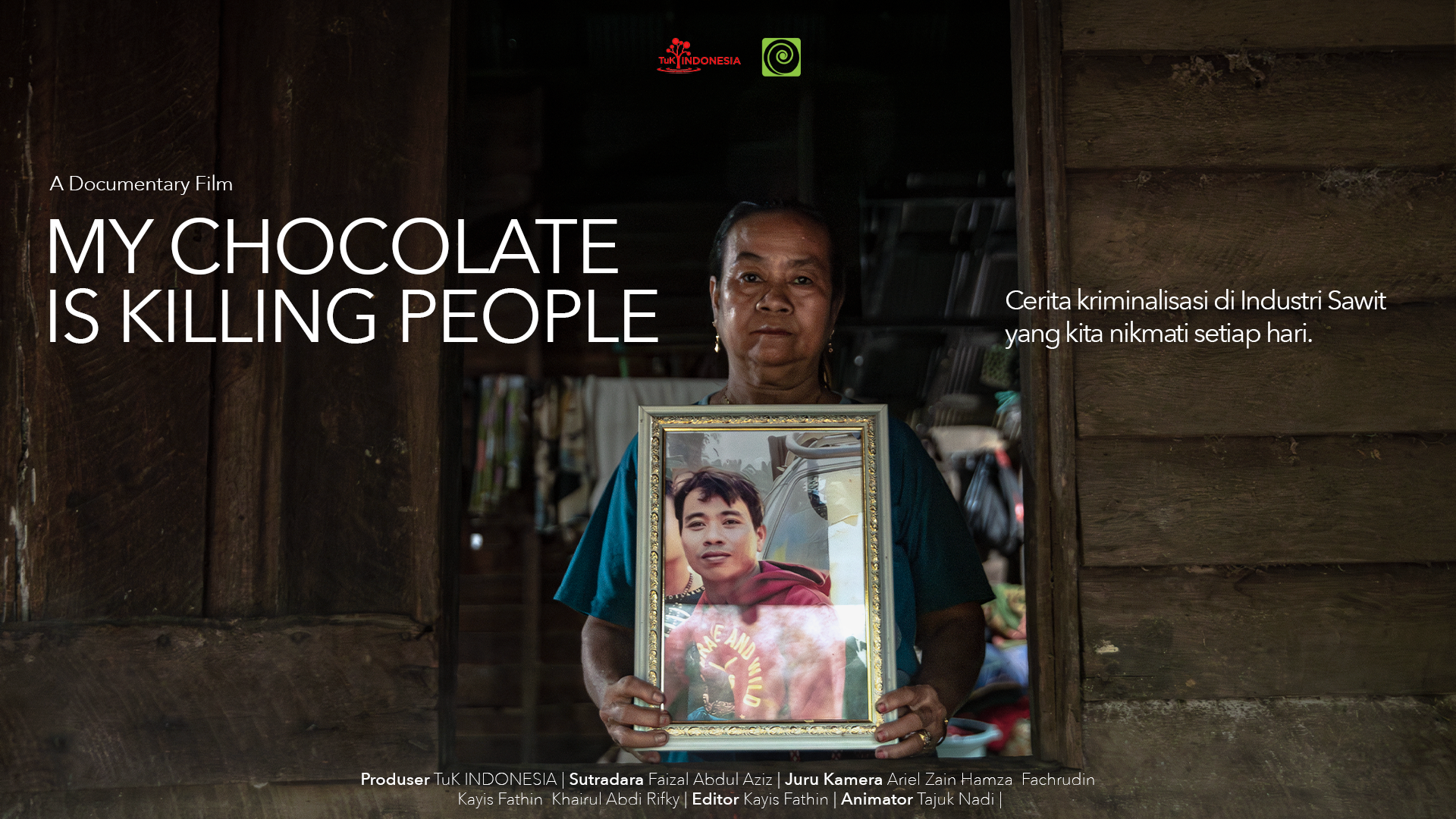20 November 2024 3 menit
My Chocolate is Killing People

Synopsis
“My Chocolate is Killing People.” A peculiar, even worrisome statement. A harmless treat, a sure favorite for children and even the adults among us—What could cause chocolate to become deadly? Is this chocolate somehow poisoned?
In October 2023, a harrowing shooting occurred in Seruyan, Central Kalimantan, claiming the life of one victim, and injuring several others. The shooting was the culmination of a land conflict that began when PT. HMBP, a subsidiary of Best Agro, failed to fulfill its plasma farm obligations to the local community. In response, residents staged an occupy protest on the land, demanding their rightful access to the companies promises.
On the morning after 19 days of peaceful protest, as residents were preparing breakfast and coffee, police forces were deployed by the company in an attempt to remove the demonstrators. Police fired tear gas and live bullets from assault rifles, ordered to aim at protesters’ heads by their commander.
Agrarian conflicts on monoculture plantations, particularly palm oil, are not a new occurrence in Indonesia. This particular shooting incident reflects a deeper systemic issue stemming from mismanagement by palm oil plantations in the country. Best Agro, one of Indonesia’s largest palm oil plantation owners, has been criticized for its lack of transparency in its supply chains and product sales.
On an international level, mechanisms such as the RSPO (Roundtable on Sustainable Palm Oil) have aimed to enable the public to distinguish “good” palm oil from “bad.” Similarly, Indonesia has its own certification system, the ISPO, to ensure that palm oil and its derivative products meet environmental and social standards. These certifications aim to guarantee that products are free from deforestation, respect workers’ and indigenous peoples’ rights, and are conflict-free.
However, due to the conflict at PT. HMBP, the company is now ineligible for RSPO and ISPO certification. So, where do their palm oil products go? Investigations reveal that the company sells its uncertified products through intermediaries that hold RSPO and ISPO certifications.
In practice, “dirty” palm oil is often mixed in with certified products, accompanied by misleading sustainability claims—a classic case of greenwashing to make these products appear eco-friendly and marketable on a global scale. This practice is not isolated to one company but involves multiple players within the palm oil supply chain.
As a result, consumers cannot tell the difference between “good” and “bad” palm oil, leaving us unaware of which chocolate might have cost someone their life.
This post is also available in: Indonesian
